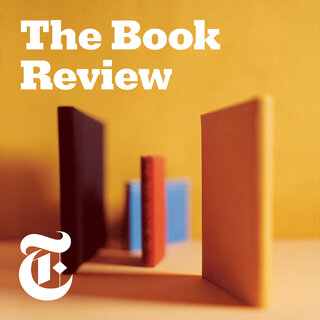 Book Review
Book Review- The Rise and Fall of The Village Voice
- Book Club: Let’s Talk About Barbara Kingsolver’s ‘Demon Copperhead’
- Reading Recommendations From Book Review Staffers
- ‘Killers of the Flower Moon,’ From Page to Screen
- Happily Married, and Seeing Other People
- 15 Books Coming Soon to a Shelf Near You
- Steven Soderbergh’s Year in Reading
- Reading James McBride’s ‘The Heaven & Earth Grocery Store’
- How to Tell the Story of a Giant Wildfire
- Our Critics’ Year in Reading
- Talking About the 10 Best Books of 2023
- The Success of Rebecca Yarros and Barbra Streisand’s Mammoth Memoir
Book Club: Let’s Talk About Barbara Kingsolver’s ‘Demon Copperhead’
We want to know what you think.
Hosted by Gilbert Cruz
Subscribe: Apple Podcasts | Spotify | How to Listen
Barbara Kingsolver’s novel “Demon Copperhead,” a riff on “David Copperfield” that moves Charles Dickens’s story to contemporary Appalachia and grapples engagingly with topics from poverty to ambition to opioid addiction, was one of the Book Review’s 10 Best Books of 2022. And — unlike an actual copperhead — “Demon Copperhead” has legs: Many readers have told us it was their favorite book in 2023 as well.
In this week’s spoiler-filled episode, the Book Review’s MJ Franklin talks with his colleagues Elisabeth Egan (also an editor at the Book Review) and Anna Dubenko, The Times’s newsroom audience director, about Kingsolver’s novel and its enduring appeal.
We’d love to hear what you loved (or didn’t) about “Demon Copperhead.” Share those thoughts in the comments and we’ll try to weigh in.
Let us get you started…
Elisabeth Egan: “I read it in three days. I did not put it down. I could not stop thinking about it. I read a pre-publication galley, so when I read it, I didn’t have anyone to discuss it with and that almost killed me.
“And since the book came out, I’ve recommended this book to more people than I think I’ve ever recommended a book to. And I’ve heard back from more of the people who I recommended it to than I ever have with any other book.”
MJ Franklin: “When I first heard the premise of this book — using Dickens to tell the story of the opioid crisis — I was like, this sounds really cool and really ambitious, and I’m excited to see how it pulls this off. But I was also a little bit fearful and had a little bit of trepidation because it could be dutiful. It has this responsibility to Dickens. It has this responsibility to covering the serious topic, and I felt like it was saddled with so much other than ‘Just tell a good story.’
“And I’m happy to say I did not in the end feel like this was a dutiful book. It feels lively, it feels propulsive. It feels searching, it feels pointed. There is a very strong political message here, but I feel like it’s worked in, for the most part, pretty seamlessly.”
Send your feedback about this episode, and about the Book Review’s podcast in general, to books@nytimes.com.
Explore More in Books
Want to know about the best books to read and the latest news? Start here.
In her new memoir, “Splinters,” the essayist Leslie Jamison recounts the birth of her child and the end of her marriage.
The Oscar-nominated film “Poor Things” is based on a 1992 book by Alasdair Gray. Beloved by writers, it was never widely read but is now ripe for reconsideration.
Even in countries where homophobia is pervasive and same-sex relationships are illegal, queer African writers are pushing boundaries, finding an audience and winning awards.
In Lucy Sante’s new memoir, “I Heard Her Call My Name,” the author reflects on her life and embarking on a gender transition in her late 60s.
Do you want to be a better reader? Here’s some helpful advice to show you how to get the most out of your literary endeavor.
Each week, top authors and critics join the Book Review’s podcast to talk about the latest news in the literary world. Listen here.
Advertisement